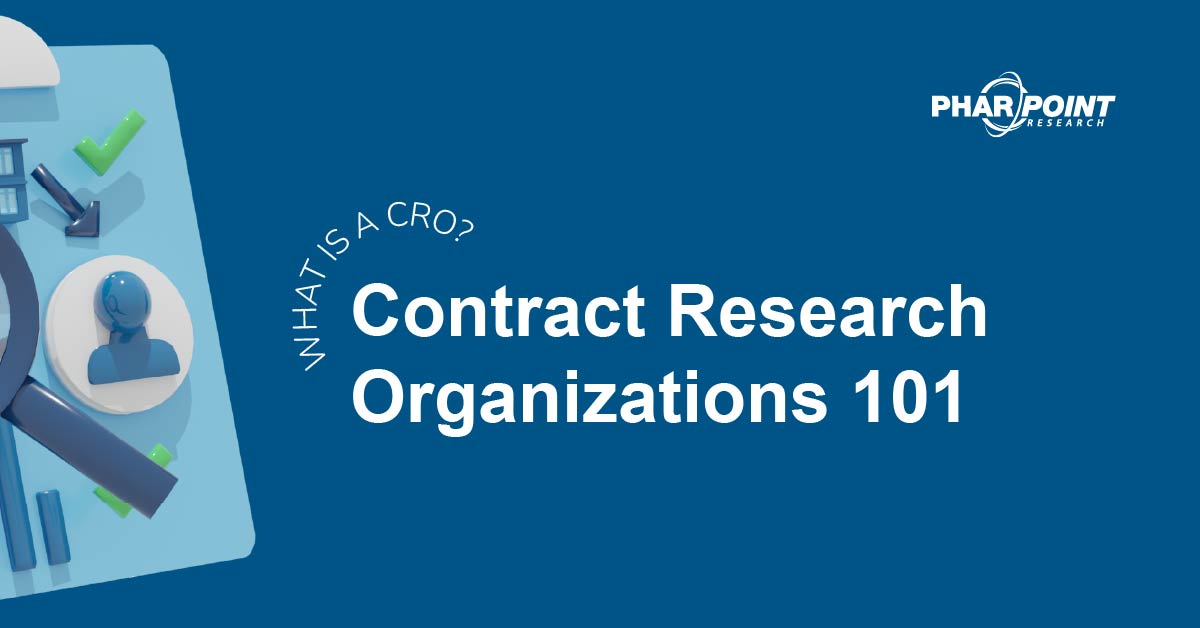Contract Research Organizations 101: What is a CRO?

A contract research organization (CRO) plays a critical role in helping pharmaceutical, biotechnology, and medical device companies bring new treatments to market. By outsourcing parts – or all – of the clinical research process to a CRO, sponsors can reduce costs, shorten timelines, and access specialized expertise.
Contract research organizations (CROs) is an company hired by a sponsor (typically, pharmaceuetical, biotechnology, or medical device companies developing new drugs or treatments) to manage all or part of the clinical research process. CROs often provide the people, processes, and technology needed to plan, run and report on clinical trials in compliance with regulatory standards.
In simple terms: A CRO is an outsourced partner that helps bring a drug, device, or therapy from the lab to market faster, more efficiently, and in compliance with regulations.
CRO services can span the entire drug development lifecycle and many offer a wide range of services to meet a sponsor’s needs.
Most CROs provide a range of functions to support clinical trials (Phase 1-4 studies done with human participants). This may include services like:
Support in developing study protocols, timelines, and high level clinical development plans
Selecting (and later, supporting) investigative sites to include within a clinical trial
Including things like database build and ongoing data cleaning
Works collaboratively across study functions to mitigate risk and keep all study deliverables on track
Ensures a study is conducted as planned, ethically, and in compliance with regulations
Ensures a study is statistically sound and provides all study analyses
May produce study reports and various regulatory documents
Some CROs may also offer non-clinical and preclinical research (studies before clinical testing begins or that don’t involve the treatment and/or monitoring of living patients).
Sponsors – such as pharmaceutical, biotechnology, or medical device companies – work with CROs for strategic and practical reasons. This includes:
A CRO may provide access to additional resources or teammates that a sponsor may not maintain in-house.
A CRO may provide efficiencies within both time and cost. According to an April 2019 Tufts CSDD Impact Report, “R&D projects managed by CROs typically deliver shorter cycle times despite growing protocol complexity and expanding study scope.” (Source)
A CRO may be brought on to provide specific insights that complement a sponsor’s internal expertise.
For example, while a sponsor will have deep expertise when it comes to their investigational product (IP), they may rely on a CRO to contribute expertise regarding a specific clinical trial service such as biostatistics.
A CRO may provide sponsors with access to networks or resources in different geographical areas. For instance, a UK based company that is conducting a trial within the United States (US) may partner with a CRO that has US locations.
CROs can be grouped by scope and specialty. According to Applied Clinical Trials, in February 2023 there were over 2,800 CROs in the United States alone.
| CRO Type | Primary Focus | Ideal For |
|---|---|---|
| Full-service | Provides end-to-end clinical trial services | Companies looking to provide oversight over a partner who is conducting day-to-day operations. |
| Specialty or Boutique | Often provides just one or a handful of niche services (e.g., an oncology CRO or a biometrics CRO) | Sponsors with targeted needs |
| Functional Service Provider (FSP) | Provides ongoing outsourcing of specific roles | May be used by sponsors who prefer a vendor who works under their standard operating procedures |
Note that the above table is not a comprehensive list of the types of contract research organizations, and a single organization may operate under a mix of approaches. For instance, many full-service organizations also offer an FSP model or agree to work with clients looking for a single specific service.
Yes, clinical research is a highly regulated industry.
CROs follow regulations from local health authorities (e.g., FDA in the US and PMDA in Japan) as well as international guidelines such as the ICH-GCP.
Yes. Sponsors who are able to provide strong oversight often select more than one CRO to work on a trial.
A contract research organization (CRO) is a service provider that runs clinical trials and other research activities on behalf of sponsors. A pharmaceutical company develops, manufactures, and sells drugs or therapies. A pharmaceutical company may hire a CRO to manage part of all of its research.
In short: a Pharma company will own the product, while the CRO provides the operational and regulatory expertise and/or bandwidth to test it.
| Feature | Contract Research Organization (CRO) | Pharmaceutical Company |
|---|---|---|
| Primary Role | Provides clinical trial services | Develops and markets drugs or therapies |
| Ownership of Product | Does not own the drug or device being tested | Owns the intellectual property and final product |
| Core activities | Include clinical trial operations, data management, biostatistics | Include drug discovery, development, manufacturing and commercialization |
| Revenue Source | Service fees from sponsors | Product sales and licensing |
| Typical clients | Pharmaceutical companies, biotechnology companies, medical device companies | Healthcare providers, patients, government buyers |
Yes, a sponsor can change contract research organization during an ongoing clinical trial, but it’s a complex process. Mid-study CRO transitions must be carefully orchestrated to avoid excessive delays.
Sponsors typically make this change only if the current CRO is underperforming, the project scope changes, or the relationship breaks down.
Rather than a full study transition, some sponsors may choose to bring in an additional CRO to provide oversight alongside the incumbent partner.
By outsourcing to a contract research organization (CRO), sponsors are able to leverage an expanded team’s operational experience, regulatory knowledge, and the resources needed for a successful clinical trial. The right CRO can help sponsors move from concept to market faster and more cost-effectively while maintaining compliance and patient safety.
RELATED RESOURCES